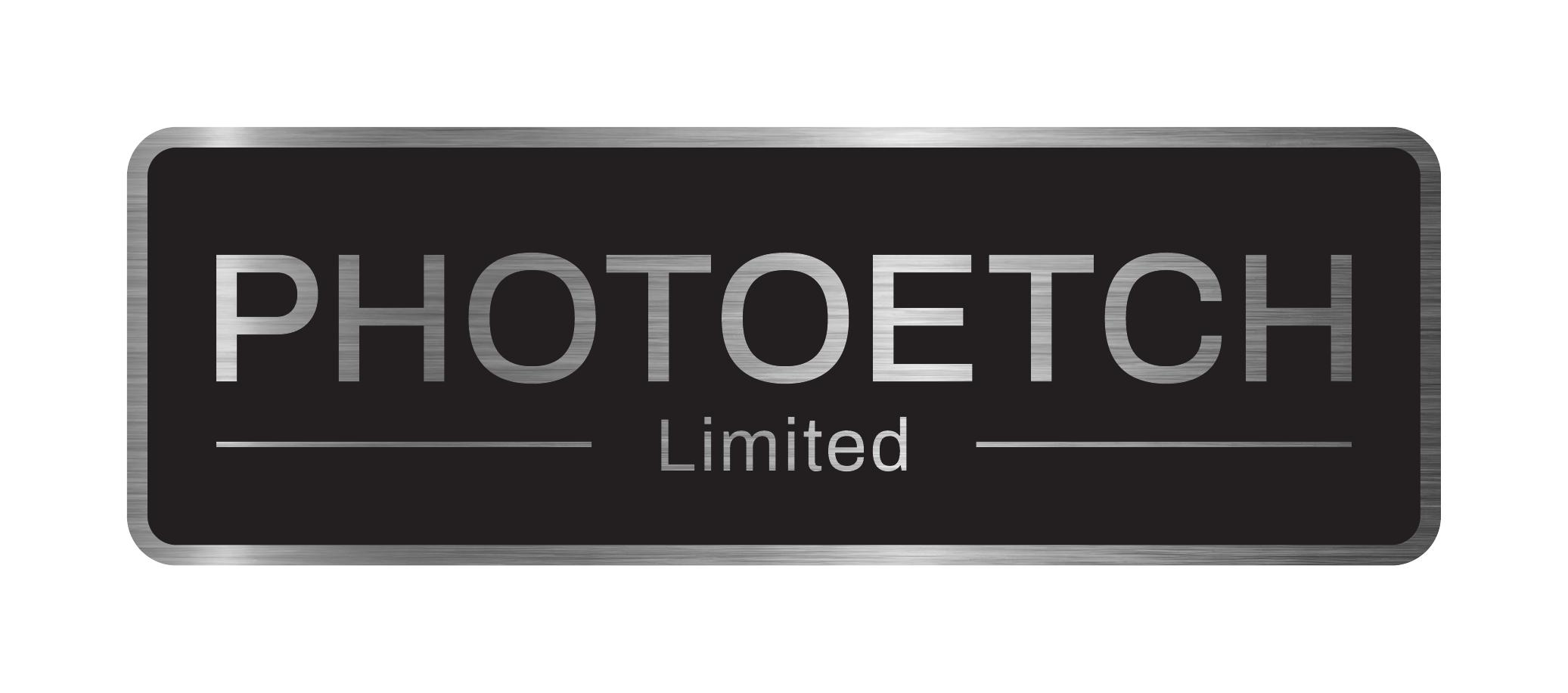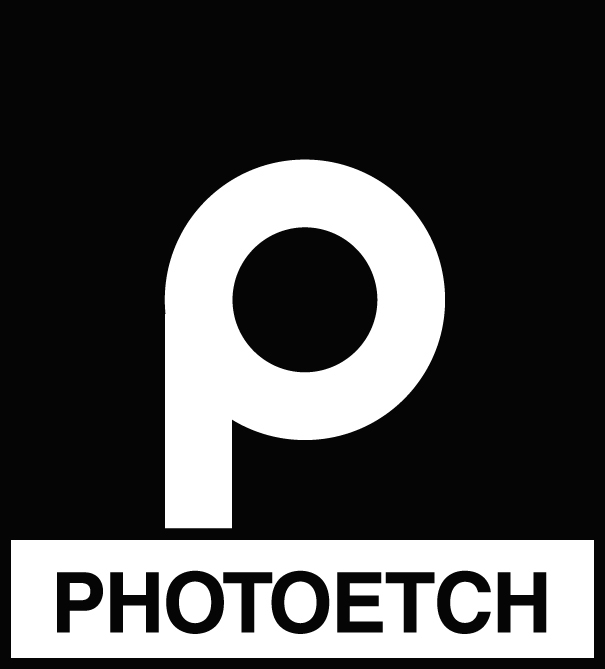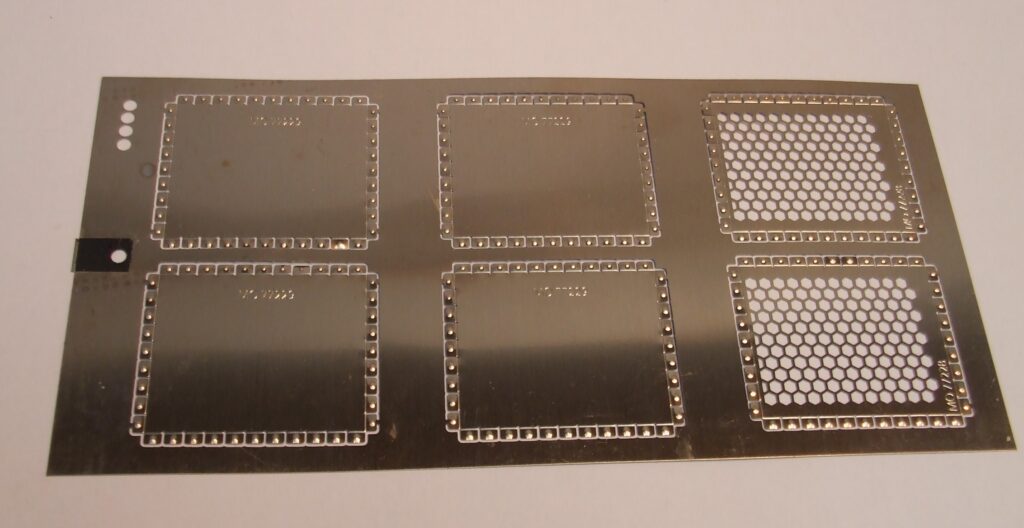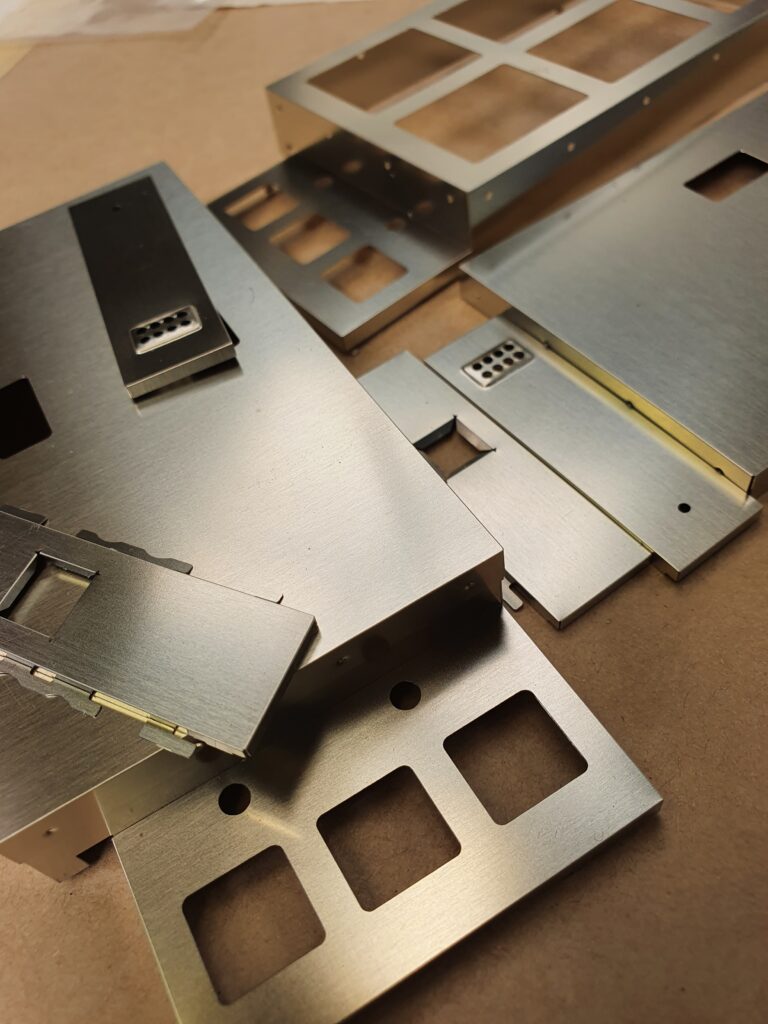Chemical Milling (or chemical etching) is the main process used by Photoetch Industries Ltd to manufacture our customers parts.
Chemical milling is a metal working process that produces parts by removing unwanted metal with chemicals from panels of sheet metal.
- The first step is to clean the metal to remove foreign matter and oxides.
- A resist (ink) is printed on both sides that conforms to the shape and size of the part, leaving exposed metal to be etched away with the appropriate chemicals.
- The resist is removed to leave the part, which is then cut out of its frame.
The ‘tooling’ used is in the form of photographic film where usually, the black area represents the part and the clear area metal to be removed. This imaging is prepared from a PDF file and contains allowances for undercut (the etch goes sideways as well as down), and panelisation.
It does not matter how complex the part is, it is all etched at once. 20,000 holes in a backplane, etch as quickly as one. The machine is able to run continuously.
This imaging is usually done in Adobe Acrobat which allows our customer to make design changes in a cost effective and timely manner. This saving in time and cost of tooling is extraordinary when compared to press tools. We can partially etch from one side to form a fold line or a recessed area. The aspect ratio, the relationship between width and thickness can be less than one. Fold lines are discussed in a separate blog on our website.
Photoetch can work metal as thin as 0.01mm. With metal thickness above 0.9 mm there is some loss of detail. The resulting edges are smooth and have no burrs or roughness. The properties of the metal do not change, (e.g. work hardening) during processing.
Depending on the job, dimensional control can be as high as +/- 0.1mm. After etching the usual range of fabricating processes can be used, such as pressing, folding, plating, guilloting, tapping, screen printing and barrel finishing.
Metals that Photoetch can work with are nickel silver, copper, brass, bronze, stainless steel, and iron alloys.
Chemical milling is especially well suited to the manufacture of precision parts such as grids and meshes, RF shields, lead frames, plate heat exchangers, precision springs, washers and gaskets.
There is no maximum quantity that chemical etching can produce. Low-cost tooling ensures prototype quantities can be supplied quickly and economically and etching lead times are minimal. Subject to quantities required and capacity, components can usually be supplied very quickly.



